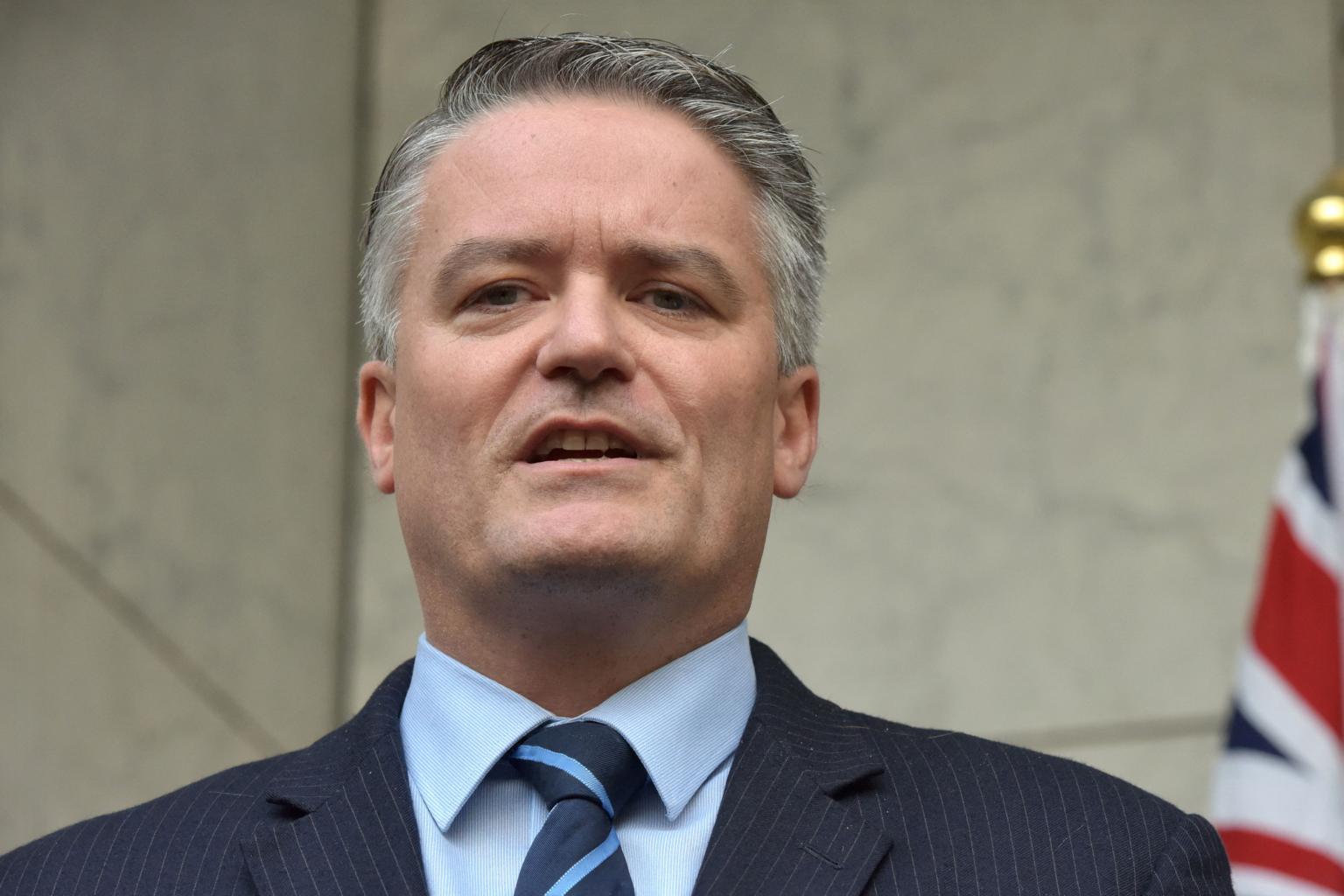Australia's Mathias Cormann to lead OECD, climate activists dismayed
Sign up now: Get ST's newsletters delivered to your inbox

Australia's Prime Minister Scott Morrison said the election of Mr Mathias Cormann demonstrated Canberra's global standing.
PHOTO: AFP
Follow topic:
PARIS (REUTERS) - Australia's former finance minister Mathias Cormann on Friday (March 12) announced he won the race to lead the Organisation for Economic Co-operation and Development (OECD), disappointing climate activists who said he has blocked efforts to reduce emissions.
Mr Cormann takes over as the OECD enters the final stretch of one of its highest profile missions: steering global talks to rewrite rules for taxing cross border commerce for the first time in a generation.
Mr Cormann won a tight race, narrowly beating the Danish politician and former European Union trade commissioner Cecilia Malmstrom who went into the final vote with broad support from most European countries.
"Earlier today I learned that the Selection Committee will recommend to the OECD Council that I be appointed as next Secretary-General of the OECD," Mr Cormann said in a statement.
He said the OECD would stay focused on maximising the strength of the economic recovery from Covid-19, to promote ambitious action on climate change and work on finalising a multilateral approach to digital taxation.
Born in Belgium before migrating to Australia in 1996, Mr Cormann has said the OECD must provide leadership on climate change, adding that the targets set in the 2015 Paris Agreement were a foundation to build upon.
Australia's Prime Minister Scott Morrison said the election of Mr Cormann demonstrated Canberra's global standing.
"This is a great honour for Mathias who has worked tirelessly over several months to engage with leaders, senior ministers and officials of OECD member nations from Europe, Asia and the Americas," Mr Morrison said in an emailed statement.
Environmental activists expressed bitter disappointment at his victory.
Last week, campaign groups sent a letter to OECD noting that as Australia's finance minister, Mr Cormann abolished the country's carbon pricing scheme, failed to commit to a net-zero emissions target, and maintained fossil fuel subsidies.
At that time, the Australian government "persistently failed to take effective action to reduce emissions at home and has consistently acted as a blocker within international forums".
"We have little confidence in Cormann's ability to ensure the OECD is a leader in tackling the climate crisis, when he has an atrocious record on the issue," Ms Jennifer Morgan, executive director of Greenpeace International, said.

